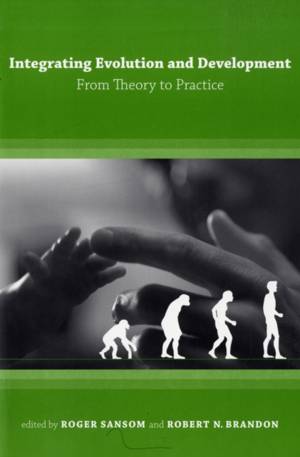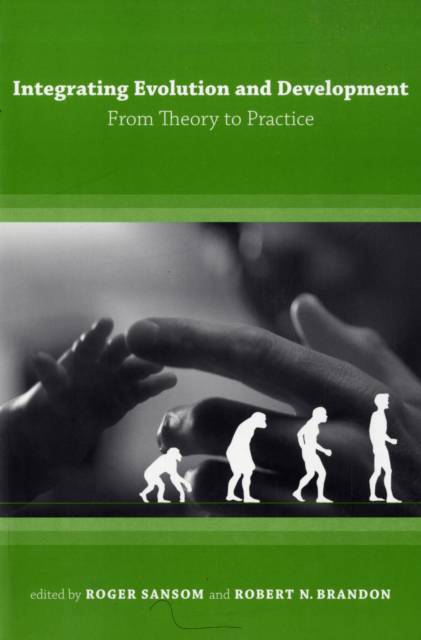
- Afhalen na 1 uur in een winkel met voorraad
- Gratis thuislevering in België vanaf € 30
- Ruim aanbod met 7 miljoen producten
- Afhalen na 1 uur in een winkel met voorraad
- Gratis thuislevering in België vanaf € 30
- Ruim aanbod met 7 miljoen producten
Omschrijving
Scholars argue for the importance of the developmental synthesis, or evo-devo, discussing the history and potential of this growing field of study and presenting specific case studies.
The twentieth century's conceptual separation of the process of evolution (changes in a population as its members reproduce and die) from the process of development (changes in an organism over the course of its life) allowed scientists to study evolution without bogging down in the "messy details" of development. Advances in genetics produced the modern synthesis, which cast the gene as the unit of natural selection. The modern synthesis, however, has had its dissenters (among them Stephen Jay Gould), and there is now growing interest in the developmental synthesis (also known as evo-devo), which integrates the study of evolution and development. This collection offers a history of the developmental synthesis, argues for its significance, and provides specific case studies of its applications ranging from evolutionary psychology to the evolution of culture. Widespread interest in the developmental synthesis is a relatively new phenomenon. Scientists don't yet know whether revisions to evolutionary theory resulting from the findings of evo-devo will be modest, with the developmental synthesis seen as a supplement to evolutionary theory, or a more far-reaching fundamental theoretical rethinking of evolution itself. The chapters in Integrating Evolution and Development not only make a case for the importance of the developmental synthesis, they also make significant contributions to this fast-growing field of study.
Contributors
Werner Callebaut, James R. Griesemer, Paul E. Griffiths, Manfred D. Laubichler, Jane Maienschein, Gerd B. Müller, Stuart A. Newman, H. Frederik Nijhout, Roger Sansom, Gerhard Schlosser, William C. Wimsatt
Specificaties
Betrokkenen
- Uitgeverij:
Inhoud
- Aantal bladzijden:
- 334
- Taal:
- Engels
- Reeks:
Eigenschappen
- Productcode (EAN):
- 9780262693530
- Verschijningsdatum:
- 1/10/2007
- Uitvoering:
- Paperback
- Formaat:
- Trade paperback (VS)
- Afmetingen:
- 155 mm x 227 mm
- Gewicht:
- 467 g

Alleen bij Standaard Boekhandel
Beoordelingen
We publiceren alleen reviews die voldoen aan de voorwaarden voor reviews. Bekijk onze voorwaarden voor reviews.










